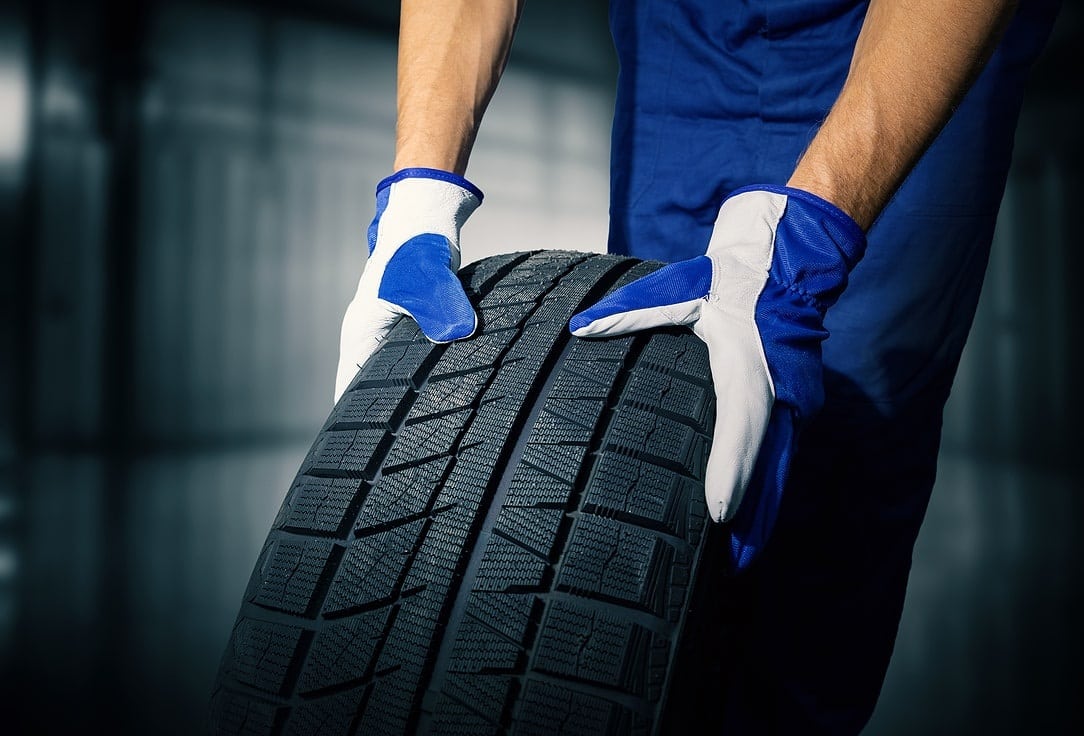
Selecting tires for your car is an important choice. Tires need to be quality, durable, and appropriate for your specific vehicle in order to last a long time. There are a few things all drivers should consider before buying. Read on for more on choosing the right tires for your car.
Tire Size
First, consult your owner’s manual or the label on the driver’s side door for recommended tire measurements. These measurements should look something like this: P215/60R16 94T. The first section refers to the tire’s size measurements, such as width and diameter. The last section indicates the load index, and the letter indicates the speed rating. Stick with the size measurements recommended by your vehicle’s manufacturer.
Load Index
Load index is a major factor in selecting the right tires. It is a two- or three-digit number that reflects how much weight the tire can hold. Multiple the number by four to determine the full load index for the car. Numbers usually range from 60 (550 lb.) to 139 (5,357 lb.). Avoid tires with lower load index than the recommended window for your car. Your local mechanic can help you find tires with the right load index for your car.
Speed Rating
Speed rating is a letter that shows to what speed the tire can dissipate heat. The hotter the rubber is, the faster it wears. The most common rates are T and H. Exceeding the maximum for your tire can lead to serious damage or tire failure, so speed rating is an important consideration. Below is an example of a speed rating chart.
Tire Type
There are a few common types of tires with different speed ratings. After you’ve identified the right size with the help of a vehicle maintenance technician, consider the following tire types:
- All-Season Tires – Usually available in S- and T-speed ratings, all-season tires are known for good all-weather grip and mileage. They are often chosen for smaller and medium-sized vehicles and SUVs.
- Winter/Snow Tires –Anyone living in an area that sees a significant amount of wintery conditions and snow should invest in snow tires for improved safety and better braking and steering on slippery roads. For optimal braking and handling, winter/snow tires should be purchased in sets of four.
- Performance All-Season Tires – Available in H- and V-speed ratings, these tires are commonly matched with newer vehicles. They offer a better cornering grip than all-season tires but tend not to last as long.
- Ultra-High-Performance Tires (UHP) – UHP tires are available as all-season or summer (three season) tires. All-season UHP tires perform better in icy and snowy conditions, while summer UHP tires do better in the rain. Their speed ratings are usually Z, W, and Y.
Tire Brand
If you like the way your car rides and handles with your existing tires, stick with the same brand. Tires that came with the car straight from the manufacturer likely were designed for the car, so they are sure to be a good fit. If your tires have been replaced or you bought the car used, you can still find out which tires they came with by checking the owner’s manual. If you have not had problems with your tires, your best bet is to continue to use the familiar brand. However, if you are not happy with your existing tires, you can consult with a vehicle maintenance technician about changing them.
Local Weather Patterns
Weather patterns and average climate in your area may be a consideration in choosing a tire type. For example, those that live in northern parts of the United States that experience a lot of snowfall and icy conditions should invest in snow tires, especially during the coldest seasons. Conversely, someone who lives in Miami might not need winter tires, which have less than ideal braking ability on cleared roads and remain flexible at temperatures below 45 degrees.
Warranties
A tire manufacturer may provide you with one of two types of warranty – a defect protection warranty or a tread warranty. Many manufacturers offer both, along with a guarantee that the tread will last several years. Warranties are provides based on a certain number of miles, and tires often wear out before reaching this number. When this happens, it is possible you will receive a replacement, but most manufacturers will check to make sure they have been rotated regularly. Make sure you consider warranties and consult with your mechanic before choosing tires.
Contact Us for Towson Car Repair Services
If you need assistance choosing new tires for your vehicle, contact Hollenshade’s today. We offer a wide selection of auto mechanic services in the Baltimore, Maryland area. Contact us to schedule an appointment or give us a call at 410-983-6265

